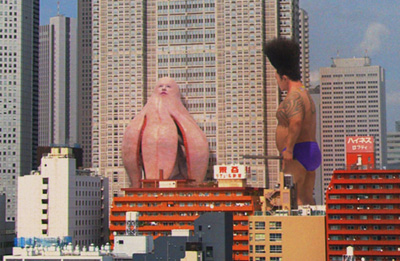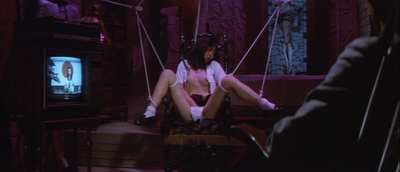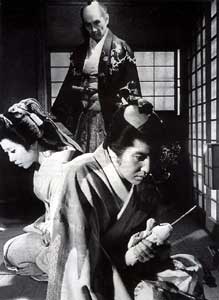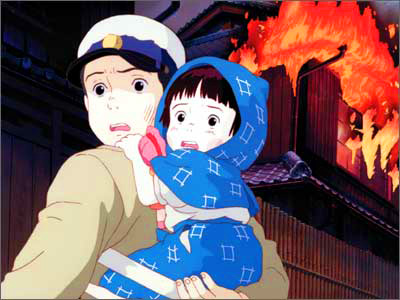 When we think of war, we tend to think first of the violence, death and atrocities, the soldiers, bombs, planes, tanks, guns, the whole grand theater of destruction that is war on the large scale. But what of the survivors? Their tears? Their grief? The untold agonies they must endure? Imagine the unbearable anguish of having to look on, helpless, as your dearest loved one slowly dies before your eyes, and there's no one there to help. If you find all of this depressing, then I'd advise against viewing Grave of the Fireflies (1988).
When we think of war, we tend to think first of the violence, death and atrocities, the soldiers, bombs, planes, tanks, guns, the whole grand theater of destruction that is war on the large scale. But what of the survivors? Their tears? Their grief? The untold agonies they must endure? Imagine the unbearable anguish of having to look on, helpless, as your dearest loved one slowly dies before your eyes, and there's no one there to help. If you find all of this depressing, then I'd advise against viewing Grave of the Fireflies (1988).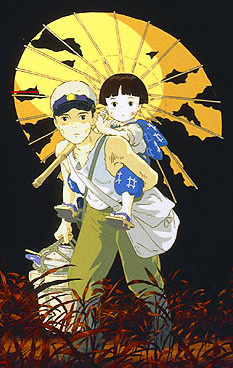 It's hard to know who the target audience is for this feature-lengh anime tale of a brother and sister trying to survive in WWII-torn Japan. Too heavy for kids, too dismal and heartbreaking for anyone else, it's a wonder anyone would want to watch it at all. And yet it's a film that should be seen, if for no other reason than to remind us all just what the human cost of war really amounts to.
It's hard to know who the target audience is for this feature-lengh anime tale of a brother and sister trying to survive in WWII-torn Japan. Too heavy for kids, too dismal and heartbreaking for anyone else, it's a wonder anyone would want to watch it at all. And yet it's a film that should be seen, if for no other reason than to remind us all just what the human cost of war really amounts to.Grave of the Fireflies is fairly apolitical (the filmmakers scrupulously avoid any form of didactic statement, focusing solely on the protagonists' efforts to survive) and thus serves as a universal tale -- these could be any two kids in any war-ravaged land. Maybe modern kids should watch this film, regardless of the trauma it might inflict; by simply presenting a narrative that no doubt actually occurred a thousand times over, the ultimate tragedy of war comes across more clearly than in any war film (or anti-war film) I've ever seen. My advice: Keep a box of kleenex handy.

